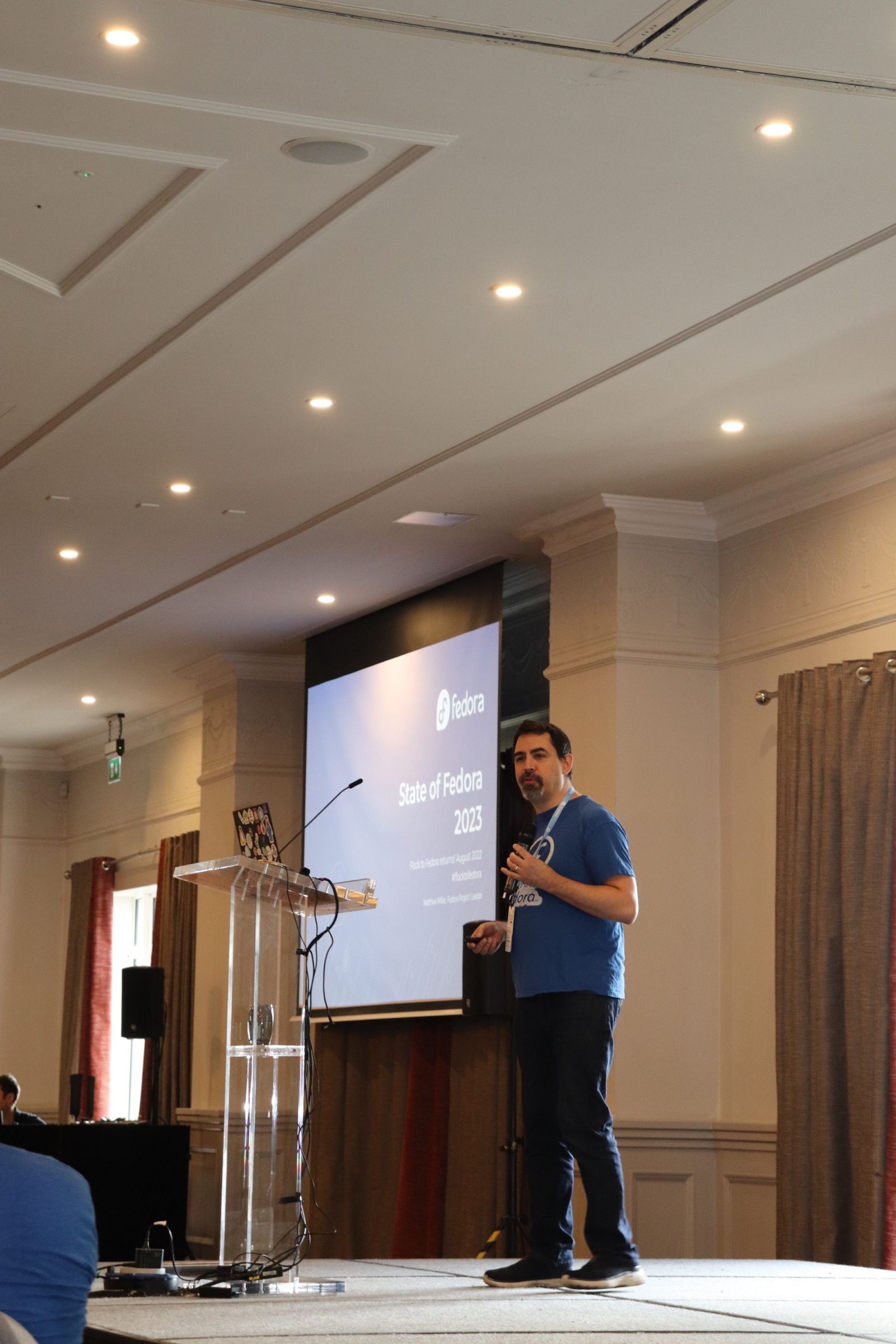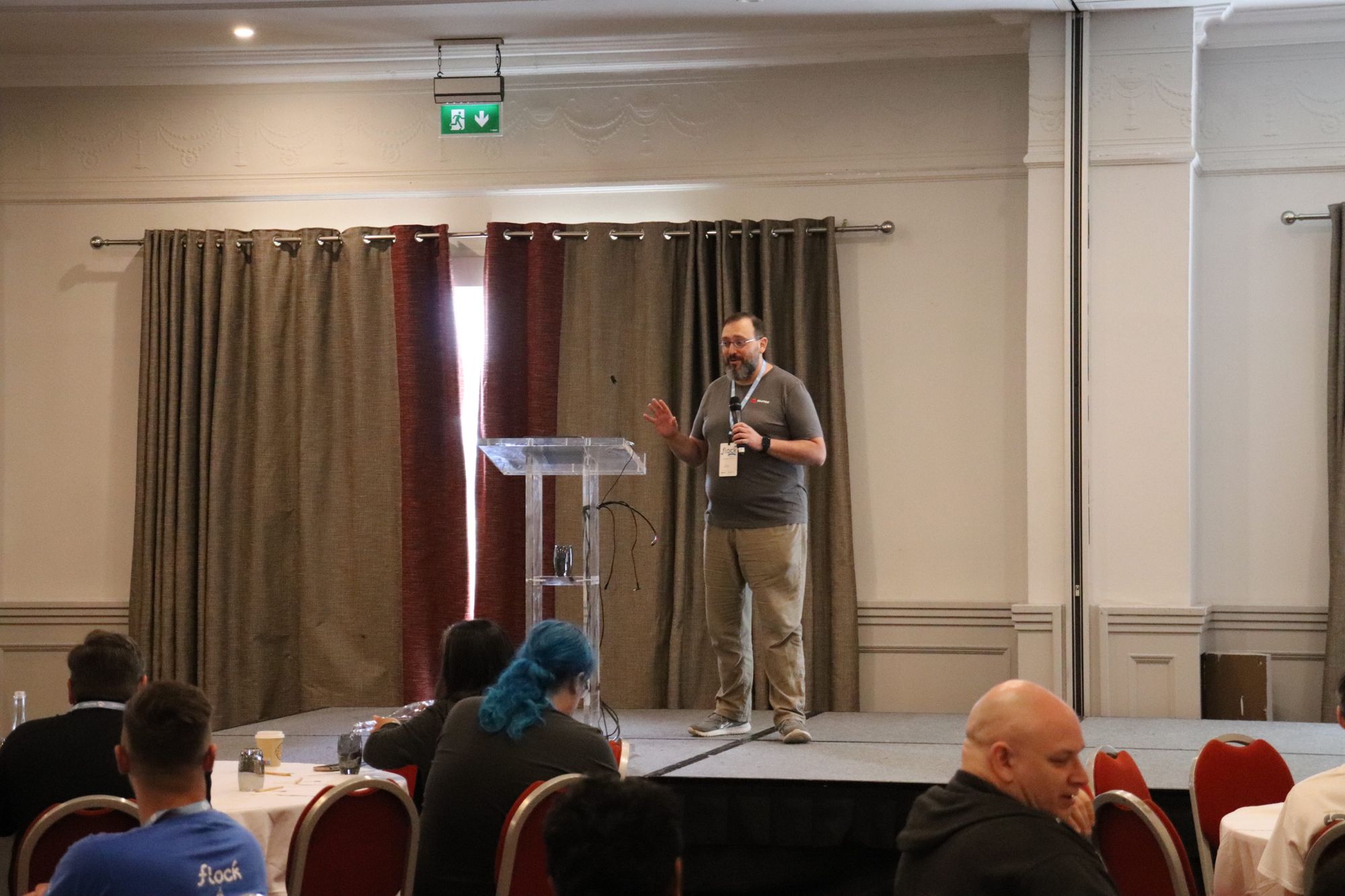Day One Part I - Flock To Fedora 2023
The first day of Flock To Fedora 2023 began with rising early to prepare for the couple of talks I had planned for the day, socializing with community friends during breakfast, finding ourselves the second and third best seats in the hall and attending three interesting keynote presentations.

After I called off my first day at the event venue a bit early, I woke up at around 0500 am Ireland Standard Time on 02nd August 2023, which was the first day of the Flock To Fedora conference. Once I got freshened up, I got a call from my parents, whom I informed about the lost checked-in pieces of luggage and my consequent attempts of finding them. I went through the slide decks again to give them some final finishing touches for the couple of talks I had to deliver on that day before I messaged David to know about his whereabouts. Once he got to my room, we headed downstairs together with our backpacks to get some breakfast in the dining space at 0700 am Ireland Standard Time.
I was expecting Michal to be around by that time but as his journey got delayed by a bit, he was able to reach the hotel only by around 0500 am Ireland Standard Time and he could use some more sleep. For breakfast, I had an assortment of yoghurt with a variety of flavours, scrambled eggs, omelettes, varieties of bread, potato hashbrowns and a cup of cappuccino. Sumantro joined us soon after for breakfast and this is also where we met Peter Boy, who worked on the Fedora Documentation efforts and Fedora Server WG at the time of writing this article. Once we were through with our meals, we headed for the ballroom auditorium where all the events for the Flock To Fedora were to take place.

By the time we made it to the auditorium, we saw Troy Dawson already there, occupying what he called the "best seat in the entire place". He worked as a Senior Software Engineer in the Red Hat Enterprise Linux team at the time of writing this article. David and I occupied the "second and third best seats in the entire place" besides Troy and we had a fun little chat. At around 0900 am Ireland Standard Time, the first talk began which was a keynote by Justin W. Flory, who was the Fedora Community Architect then and Matthew Miller, who was the Fedora Project Leader then. With a warm welcome extended to the attendees of the conference by the two speakers, it was time for the subsequent talk.

Albeit being a talk that I have watched numerous times before, the talk about the "State of Fedora" always seemed to have new things to offer. With a lot of illustrations of historical art to symbolize phases of the community growth as well as numerous graphs to better visualize the numbers, Matthew's presentation felt like a work of art. His talk was followed by the talk titled "What Does Red Hat Want?" by Brian Exelbierd, who worked with the Red Hat Enterprise Linux Business Unit at the time of writing this article. At around 09:50 am Ireland Standard Time, this talk began, and it was interesting to listen to Red Hat's representation amidst all the poor publicity around the organization at that time.

Not only did I get to know about the state of affairs around the organization and the relationship with the downstream communities, but I also got to know about what it considered as things that they can bank upon. It takes a certain kind of discipline to be able to share these things explicitly in a public forum while representing an organization at the same time, which I personally found very impressive about Brian. The other thing that was astonishing about this particular talk was that there was no slide deck associated with the presentation but by no means that meant that there was no fixed agenda on hand. After a couple of questions from the audience, it was time for a social break.